#anti homeless architecture makes me insane
Explore tagged Tumblr posts
Text
Ecology win! The electric fence guarding them empty lot is powered by solar panels
#sure is a good thing the bridge nearby has bars under it protect it’s vulnerable underbelly#anti homeless architecture makes me insane#this morning on my commute to work there was someone losing their shit on the train#writhing in agony#matted hair#torn up shoes#they looked like a frat bro that got lost on a bad trip and had no one who could bring him back#it made me uncomfortable#but I was less afraid than when I had to walk by some business men by their truck#I’m sure they were also uncomfortable#I’m sure they would prefer to be somewhere they could call their own#even a safe little hole under a bridge or a tent in an empty lot could be better#especially if they knew no one would fuck with their shit#like? there is so so so much work I do that doesn’t need to happen#it seems like the less necessary something is the higher the monetary reward#& this is not a universal truth#but I got paid way less to talk to people about environmental policy or help them learn math#than when I sat in the back of a banking conference doing nothing#& there is so much shit that doesn’t get done that needs doing#there are camps surrounded by piles of trash#and literal shit in the middle of the sidewalk#I’m confident that the people that generated that unpleasantness#A) would rather throw shit in a trash can and shit in a proper toilet like a human being and not on the street like a dog#B) would be happy to go around cleaning up the streets(literally) in exchange for a living wage#and those jobs exist#but there clearly aren’t enough people doing them#just like we don’t have enough train drivers#and enough therapists#and enough cooks#and enough teachers
1 note
·
View note
Text
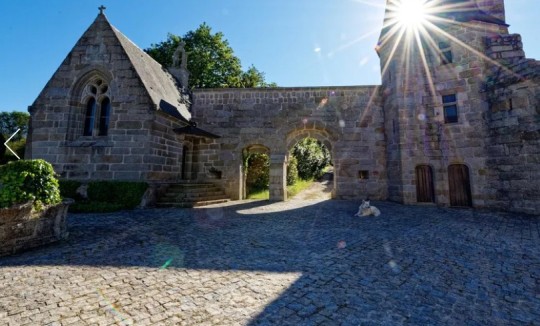

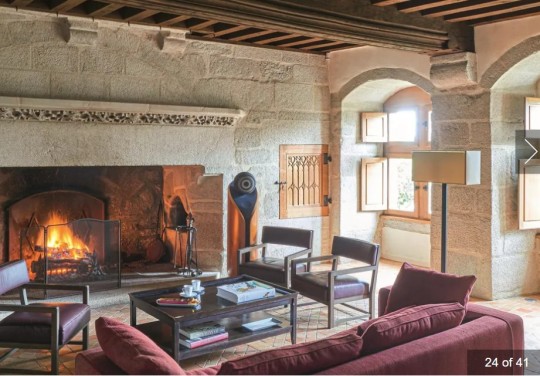

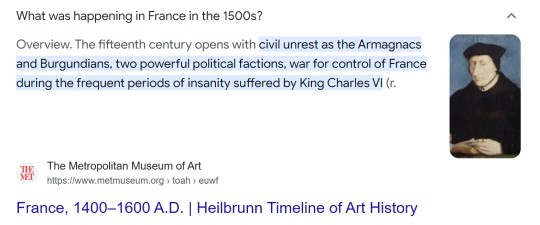
INSANITY - HAS - 2 - DO - WITH - THE - WEATHER
ENGLAND - RARELY - HAS - A - BRIGHT - WARM &
LONG - SUNNY DAY - EVER - WHEN - FORMER -
SERENE - PRINCESS - WED - 'SPARE' - AFTER -
MARRIAGE - HIS - ROYAL HIGHNESS - PRINCE -
HARRY - GREENEST - LAWNS - SAW - TV YES -
LIVE COVERAGE - 'FORSAKING ALL OTHERS' -
ABOUT - THE - MISTRESS - OF - PRINCE - YES -
THE - 1ST - 'ALL - OTHERS - NOT - FORSAKING' -
YEAR - 1500 - HAD NO - KING - YET IN FRANCE -
34 YRS - LATER
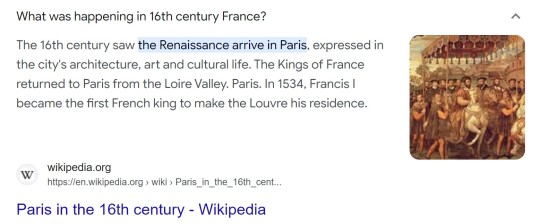
KING - FRANCIS 1 - MADE - LOUVRE - PARIS -
FRANCE - HIS - RESIDENCE - RETURNED FR -
LOIRE VALLEY - OVER - 2 HRS AWAY - 2 BE -
KING - OF - FRANCE - 16TH - CENTURY - FR
A - COUNTRY - 2 B - PROUD - OF - 2 B PART
OF - NO ONE - FR - PHILIPPINES - EVER FL
FOLLOWED - ME - HERE - BECAUSE THEY
PRODUCED - THEIR - FAMILY - THEIR - YES
CLASSMATES - NEIGHBORS - THEIR TRUE
DIALECTS - BUT - HISTORIANS - KNOW -
PHILIPPINES - NOT - CONTINUOUS YES -
EXISTENCE - THEY - ALL - DIED - AFTER -
67,000 YRS - LUZON - AND - VISAYAS SO -
5,000 YRS - CONTINUOUS - EXISTENCE
CHINA - FLED - 2 - LUZON - SKELATONS
EVERYWHERE - SINCE - ME - KNIFED -
SHOT - RAPED - NO - ONE - FR - THAT -
COUNTRY - FOLLOWED - ME - WELL -
TIME - 2 - GO - BACK - 2 - MY ROOTS -
EUROPE - CHINA - KOREA - ALSO KR -
FLED - 2 - PILIPINAS - AND - BEGAN -
AGAIN - PHILIPPINE - ISLANDS - AS -
MEDICAL - RACE
JESUS - SAID - U - JUST SHAKE - THE -
DUST - OF - YOUR - SANDALS - POINT -
FEET - 2 - THE - CITY - THAT - DON'T -
WELCOME - U - BETTER OFF - THAT -
THE - CITY - U - WERE - IN - NEVER -
EVER - EXISTED - THOSE - CITIES -
WILL DISAPPEAR - FR - EXISTENCE -
BRITTANY - WHERE - I'M - GOING 2 -
AS - DIRECT - DESCENDANT - OF -
SIR PATRICK HENRY
QUEEN - MARY - OF - SCOTTS
LAST KING LOUIS OF FRANCE
RELATIVES - OF -
KING ALEXANDER - ANCIENT - GREECE
JULIUS CAESAR - ANCIENT - ROME
TIME - 2 - MAKE - EUROPE - HOME
I'M - A - PROVINCIAL - PERSON - A
FARM - GIRL - LOVE - OUR - SEAS
OUR - FISHERMEN - AS - THEY FR
BRIG - US - SEAFOOD - CRABS
LOBSTERS - HUGE - FISHES - 2
EVEN - IN - PILIPINAS - RARELY
DID - ANYONE - TALK - 2 - ME 2
KILL - ME - WHAT - THEY - DID A
LOT - KIDNAPPED - ME - DID PH
MANY - THINGS - 2 - ME - BUT AS
PEOPLE - ONLY - CHILDREN - YES
TALKED - 2 - ME - THE - REST DID
THEIR - BEST - 2 - COLLECT - FRM
FAMILY - INSURANCE - $1 MILLION
DEATH - OF - EACH - CHILDREN AS
STARTED - BY - MOTHERS - GRADS
UNIVERSITY - OF - PHILIPPINES SO
BACK - 2 - EUROPE - AND - OTHER
ASIA - ONLY - BUYING - MAKATI - &
MINDORO - ISLANDS - 4 - ONLY THE
KIDS - OF PILIPINAS - TALKED 2 ME
BIG - SUSU - PIA - AND - CATRIONA
THEY - WORSHIP - AND - ADORE - 4
NO ONE - CONGRATULATED ME -
5 GOLD - MEDALS - IN - EUROPE -
BUFFET - IN - MIAMI - EVEN - AS -
HOMELESS THEY DON'T KNOW -
ME - CLEAN - THEIR - FLOORS -
1,000 - A MONTH - UNFURNISHED -
KNOWING - SSI LESS - THAN THAT -
BRITTANY - FRANCE - WORLD's OLDEST -
STANDING - ARCHITECTURE - PILIPINAS -
BIG SUSU - BEAUTY PAGEANT WINNERS -
MS UNIVERSE - 2018 - CATRIONA GRAY -
$250,000 - NO - CROWN - ONLY - RENT -
UNITED STATES - 'U - GET - WHAT - YOU -
PAID - FOR' - NATURALIZATION - NUDE -
IN - FRONT - 2 - IDENTIFY - GENDER - & -
DEADLY - DISEASE - PEEPERS - AS USA -
MORE - THAN - 1 MILLION - DEAD - FRM -
CORONAVIRUS - COLDS - COUGH - AND -
FEVER - AGE 245 - MEDICAL - EXPERTS

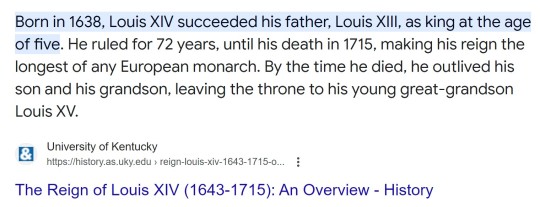
KING LOUIS XIV - WAS - ONLY - AGE 5 - SUCCEEDED -
HIS - FATHER - LOUIS XIII - RULED - 72 YRS - MAKING -
HIS - REIGN - THE - LONGEST - OF - ANY - EUROPEAN -
MONARCH - USA - MISS UNIVERSE - REIGNS - 1 YEAR -
HER - BEAUTY - AND - LARGE - SUSU - BY - JUDGES -
ALWAYS - 2 BLKS - 1 GAY - AND - OTHERS - THIS KING -
OUTLIVED - HIS - SON - AND - GRANDSON - GIVING -
HIS THRONE - 2 - HIS - YOUNG - GREAT - GRANDSON -
LOUIS XV - ALSO - AT - THE - AGE OF 5 - HOW - COOL
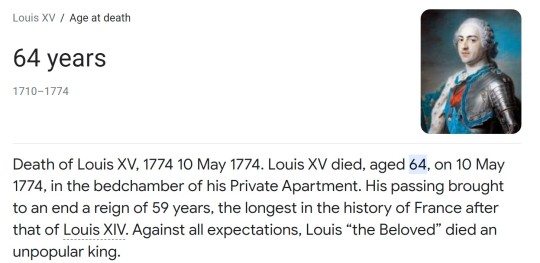

GOOGLE - SEARCH - KEEPS - CLOSING -
ALL - THE - ARROWS - I - OPENED - TO -
GIVE - ME - INFORMATION - ON FRANCE -
GOOGLE - ANTI - FOREIGNERS - AS - USA
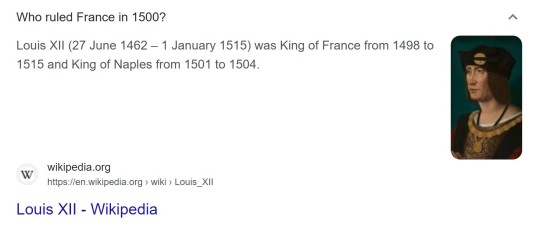
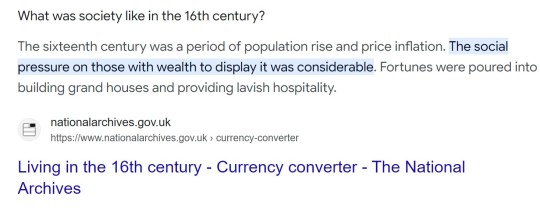

ROBUST - CUISINE - OUTDOORS - MEATS - CHICKEN -
AND - SEAFOOD - FULL - FLAVORED - GOD's - TRUE -
GOODNESS - INTO - THE - KITCHEN - MACHEREL -
SARDINES - PORK - RILLETTES - ENGLISH - YES -
PANCAKES - APPLE - CIDER - FRENCH - CREPES -
ADD - A - DASH - OF - SWEETNESS - SOUNDS FR -
DIVINE - PREPARING - 2 - GO - 2 - MIAMI BEACH -
FREE - SHOWER - JUST - 35 MIN - AWAY - WILL B -
BACK - JESUS - IS - LORD - FOUND - HOME -
AGAIN - LEAVING - TYRANTS - OPPRESIVE -
BORN - IN - PHILIPPINES - 2 - WHAT - TRUE -
PURPOSE - 2 B - BORN - 2 - SING - & DANCE -
BACK - HOME - ENGLAND - IN - FRANCE -
BACK - 2 - BRITTANY - FRANCE - 'JOLLY -
ENGLAND' - IN - FRANCE - BACK HOME -
4 - SMALL - EUROPEAN - COUNTRIES -
ALWAYS - WELCOMED - ME - AND MY -
PHILIPPINE - UNIFORMED - MAID - SO -
BACK - 2 - EUROPE - AND - OTHER -
ASIAN - COUNTRIES - AS - HOME 2 -
'HOME - SWEET HOME'
AS - A - WRITER - WILL -
SHARE - MY - FULL OF -
MY - BLOOD - SHED - HERE - MIAMI -
MY - BLOOD - SHED - IN - MAKATI 2 -
SHARING - MY - LIFE - ON - EARTH -
WRITING - A - LOT - AT - BRITTANY -
FRANCE - CAN'T - WAIT - 2 - MEET -
MY - MALE - DOCTORS - IN - CHINA -
ACUPUNCTURISTS - AS - I - BECOME -
THAT - 2 - IN BRITTANY - FRANCE FR
1 note
·
View note
Text
Death of a Dystopian: The life and legacy of J.G. Ballard - by Joanne McNeil
On the third week of April in 2009, the news included stories about celebrity obsession, empty foreclosed properties, a young medical student who murdered prostitutes, and the death of the man who forecast this media landscape years ago. James Graham Ballard died of advanced prostate cancer on April 19 at the age of 78.
Apart from maybe Samuel Beckett, no other modern writer saw his ideas proliferate across so many platforms. Ballard influenced filmmakers from David Cronenberg to Mary Harron. The French philosopher Jean Baudrillard and the American critic Susan Sontag were fans. Ed Ruscha quotes Ballard in one of his paintings. Joy Division, Hawkwind, and even Madonna have alluded to his work in their lyrics. There was an art show in Barcelona last year entirely devoted to his life and ideas.
J.G. Ballard is best known for Empire of the Sun (1984), a largely autobiographical coming-of-age novel based on his upbringing in Shanghai, where his father was a businessman, and his internment in a World War II prison camp during the Japanese invasion. For those with darker tastes, there is the cult classic Crash, a wild, transgressive 1973 novel about a community of car-crash fetishists that was eventually made into a Cronenberg film. His writing is obsessed with the territories where the organic meets the inorganic; it is absurdist, bleak, vivid, and awake to the psychological effects of media and manmade landscapes. In the words of the novelist Martin Amis, “Ballard is quite unlike anyone else; indeed, he seems to address a different—a disused—part of the reader’s brain.”
Ballard presents particularly gruesome details of his early years in Miracles of Life, a 2008 autobiography, without any sentimental navel gazing or bitterness. While interned, with his father’s encouragement, the boy ate weevils around his plate of mushy rice “for protein.” Ballard accepted the situation as it was and even looked back at the experience with some fondness. “The most important consequence of internment was that for the first time in my life I was extremely close to my parents,” he writes. “I slept, ate, read, dressed, and undressed within a few feet of them in the same small room, in many ways like the poorer Chinese families for whom I had felt so sorry in Shanghai.”
Ballard considered this childhood ordinary. “People who read Empire of the Sun have often said to me, ‘What a strange life, how unusual,’” he told the BBC World Service in 2002. “And I say to them, actually, the life I led in Shanghai before and during the Second World War was not strange; it wasn’t unusual. The majority of the people on this planet today and for most of this century and previous centuries have always lived lives much closer to the way I lived than to, say, the comfortable suburbs of Western Europe and North America. It is here where I live today that is very strange by the world’s standards. Civil war, famine, flood, drought, poverty, disease are the norms of human experience.” Shanghai is an enormous city, but Ballard was isolated there. At the time it had only a small community of Westerners. He never learned a word of Chinese, and he had his first Chinese meal in Britain, long after he left Asia. But it was England, his home for the rest of his life, that bewildered him. In Shanghai fear and hunger and violence were right in front of him; there were dead bodies lying in the streets where he bicycled. As an adult in the comfortable London suburb of Shepperton, by contrast, Ballard had to look under the surface to find the darkest parts of the human psyche.
A characteristic Ballardian situation is the set-up to his 1974 novel Concrete Island. The protagonist has crashed off the highway and onto the triangle of land beside it. The motorists, when they even notice, mistake him for a homeless person and are unwilling to assist. He is left stranded on the concrete island, and he depends on the totaled car for survival—even drinking from the windshield-wiper water reservoir. He thinks about the son he was supposed to pick up from school. “Ironically,” Ballard writes, “in this warm spring weather the line of crippled war veterans would be sitting in the wheel chairs by the park gates as if exhibiting to the boy the variety of injuries which his father might have suffered.”
Ballard emerged as a writer in the 1960s, when he became a part of the “new wave” movement within science fiction; his early novels focused on disaster scenarios created by wind storms, floods, and drought. His finest work from this period is The Drowned World (1962). The title is pretty self-explanatory, but it plays out with a sensitivity to the natural world typically absent in science fiction. When the city of London is finally drained, the characters aren’t pleased. In fact, they’re horrified. They can’t believe people actually lived in these structures and streets so far removed from nature. The “limpid beauty” of London underwater becomes a “jungle of cubist blocks [like] a drained and festering sewer.”
As Ballard’s writing matured, his unique sensibility took shape. He was fascinated with everyday architecture—industrial parks, high ways, billboards, drained swimming pools, tract housing developments, airports—and he described these places as culturally indistinguishable interruptions of the natural landscape. His stories evinced a distrust of both technology and human nature, along with an intuitive understanding of how architecture, especially in its most banal forms, affects our emotions. In the 1970s, he produced a series of experimental novels heavily influenced by the Beat writer William Burroughs: Crash, 1970’s The Atrocity Exhibition, and 1975’s High Rise, perhaps his best novel, about the chaos that emerges among the tenants of a luxury apartment complex who form tribes and refuse to leave the building.
Ballard identified himself as a libertarian. “I’m all for free sex, alcohol and would liberalize the drug laws if some way could be found to protect adolescents,” he once told The Independent. He supported both Margaret Thatcher and Tony Blair, but generally avoided economic issues in his writing. Unlike most American libertarians, he considered himself an anti-consumerist. In his last published novel, Kingdom Come (2006), he drew a parallel between a comfortable mall-going society and a fascist one, with a character declaring that consumerism has “drawn the blueprint for the fascist states of the future. [It] creates an appetite that can only be satisfied by fascism. Some kind of insanity is the last way forward.” He criticized the other sort of “consumerism” too, and for similar reasons. In a 1971 essay, he asked whether Ralph Nader could ever become “the first dictator of the United States,” insisting that the question “isn’t entirely frivolous.…Inevitably, I suppose, the consumer society must produce its own unique demagogue, but this sort of dictator may well be difficult to recognize and unseat.”
In Ballard’s slapstick satire Millennium People (2003), the bourgeois residents of a gated community commit terrorist acts. They riot, clash with police, and bomb upper-middle-class establishments such as the Royal Albert Hall and the Victoria and Albert Museum. What are they protesting? “Double yellow lines, school fees, maintenance charges…cheap holidays, over-priced housing, educations that no longer buy security.” They are rebelling against, in one character’s words, “the barriers set out by the system. Try getting drunk at a school speech day, or making a mildly racist joke at a charity dinner. Try letting your garden grow and not painting your house for a few weeks.”
Like most of Ballard’s fiction from the last 20 years, Millennium People uses the framework of a middlebrow English novel as a way to parody the reader. For Ballard, as he explained to Salon in 1997, the novel is “the greatest enemy of truth and honesty that was ever invented. It’s a vast, sentimentalizing structure that reassures the reader and at every point offers the comfort of secure moral frameworks and recognizable characters. This whole notion was advanced by Mary McCarthy and many others years ago, that the main function of the novel was to carry out a kind of moral criticism of life. But the writer has no business making moral judgments or trying to set himself up as a one-man or one-woman magistrate’s court. I think it’s far better, as Burroughs did and I’ve tried to do in my small way, to tell the truth.”
3 notes
·
View notes